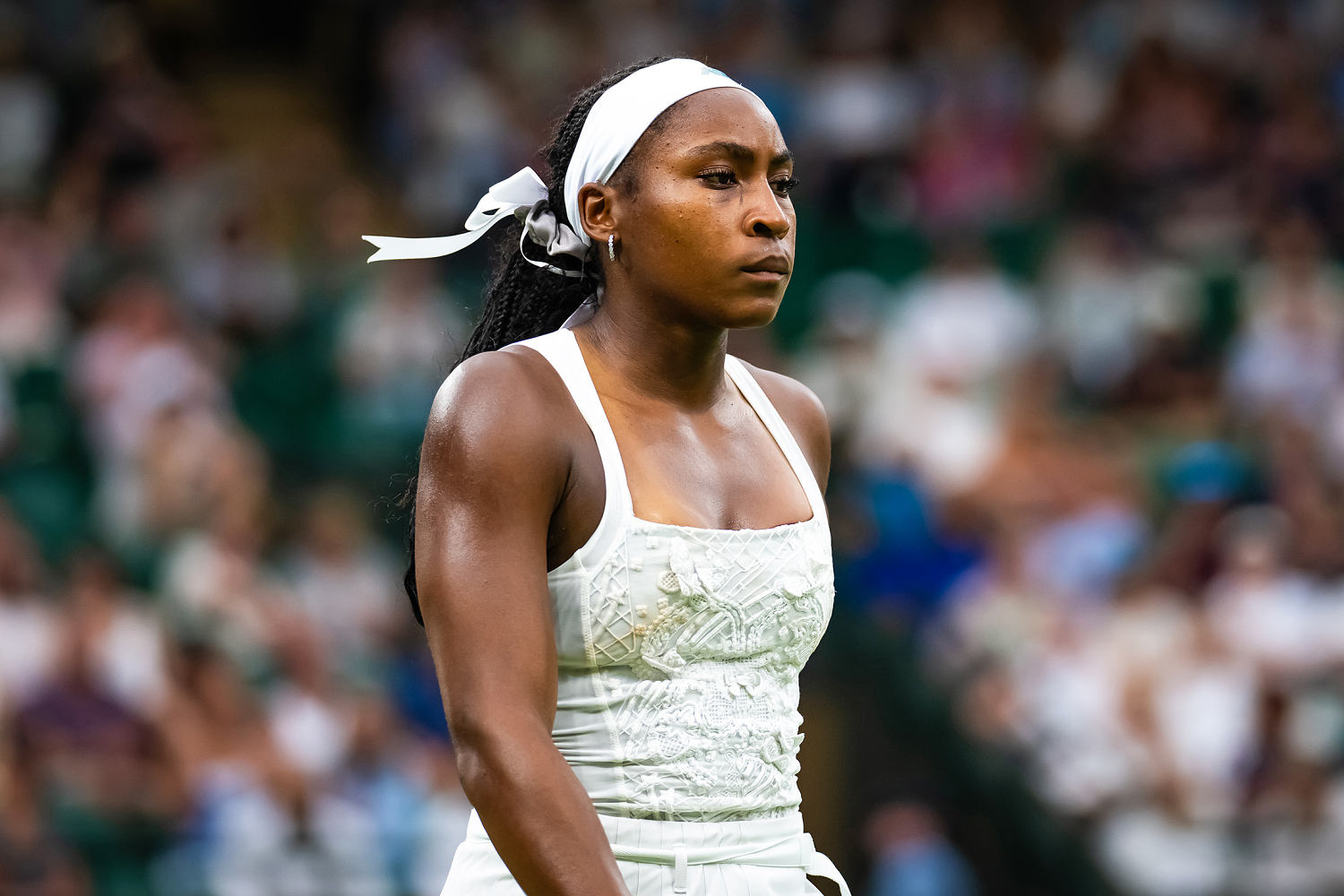
No one in women’s tennis was better than Coco Gauff in early June.
Standing on a clay court in Paris, Gauff lifted a silver trophy after winning the French Open, the second major championship of the 21-year-old’s career and the first time an American had won it since Serena Williams in 2015.
Just three weeks later, chasing her second major title of the season, Gauff didn’t even make it out of her opening match on the grass courts of Wimbledon, however. It was a stunning result — one made all the more surprising because it wasn’t an outlier.
In all, 23 seeded players combined between men and women were beaten during Wimbledon’s first round, the most since the current seeding format began in 2001. In addition to Gauff, who entered with the second-highest seeding, the women’s singles draw saw third-seeded Jessica Pegula lose. Their losses marked the first time since 1968, a turning point in the sport’s history when professionals began competing alongside amateurs at major tournaments, that two of the top three women’s seeds had been knocked out during the first round of a Grand Slam tournament.
“This is why tennis is the best reality show on earth,” said former U.S. Open champion Andy Roddick on his podcast Tuesday. “There’s no script.”
Thirteen seeded men’s players lost in the first round, tying a record at Grand Slams, the sport’s four most prestigious tournaments. Carlos Alcaraz, the 22-year-old Spanish superstar who entered Wimbledon as a two-time defending champion but needed the full five sets to survive his opening match, recited that statistic a day later after advancing out of the second round.
“It’s kind of shocking,” Alcaraz said. “Everything can happen in tennis, even in the first round.”
Like Alcaraz, another past champion, seven-time winner Novak Djokovic, remains alive in the men’s singles bracket. But their competition has been thinned out. Among those to lose in the first round included third-seeded Alexander Zverev, seventh-seeded Lorenzo Musetti, and ninth-seeded Daniil Medvedev, a former No. 1-ranked player and U.S. Open champion.
Asked about the string of upsets, Zverev didn’t see a throughline that connected his match with the losses of Musetti, Medvedev and others.
“I don’t think tennis is the problem right now for me,” Zverev said after losing to an opponent who had been just 8-17 this season. “It’s something else that I have to find within me at the moment.”
Yet Roddick, who described the scale of the upsets as “carnage,” and Gauff both left the opening rounds with theories for why Wimbledon’s draw had become so riddled with upsets that centered on style and timing.
“I would say the quick turnaround,” Gauff said after her first-round exit. “I think most of the seeds are going deeper in Roland Garros, and then you spend a long clay season and then you have to come and adjust to grass.”
In the annual tennis calendar, the number of tournaments played on grass are outliers. That leaves relatively little time to get comfortable for playing on the surface, where the ball bounces lower and moves slower, before Wimbledon arrives. Yet how to best prepare for Wimbledon opens up another wrinkle for players who must decide whether to play the week before in other tune-up tournaments on grass but risk fatigue or whether to rest up.
Just 12 days after winning on the clay court at Roland Garros in Paris, Gauff played on grass in Germany, and lost. After her defeat, she questioned whether she would play the same tournament again because of the quick turnaround.
“It’s a tricky thing and it seems like Carlos and Novak are the ones to figure it out and even (Alcaraz) had a tough first-round match,” Gauff said. “I really just think it’s that this turnaround, I think, this Slam out of all of them is … the most prone to have upsets just because of how quick the turnaround is from clay.”
Though Gauff’s playing style is not particularly suited for success on grass, Roddick said on his podcast, Pegula’s loss was “most shocking” because it is. Pegula’s quick exit at Wimbledon came only three days after she had won another grass-court tournament in Germany that was seen as a warmup for Wimbledon.
“This is what happens when you actually play tournaments outside of the monosurface where it’s all kind of the same,” Roddick said. “… You allow different styles in. …This is what we get. We don’t get a six-week lead-in where we’re getting a data set from (tournaments in) Monte Carlo through Geneva that matter in predictions and knowing what’s going on.
“I would say there are fewer people that know what they’re doing on grass, like really really know what they’re doing, than on any other surface.”
